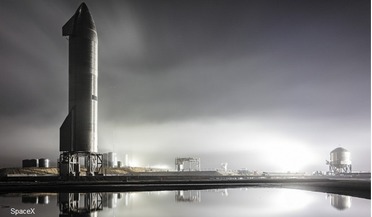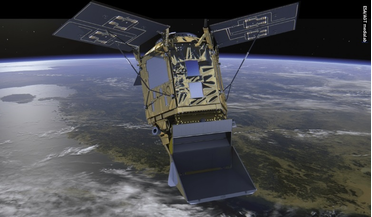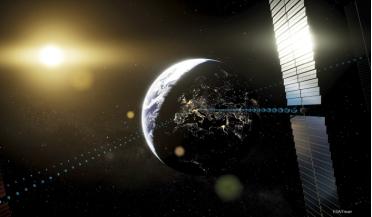 February 2018
Our space future lies in innovation
February 2018
Our space future lies in innovation
...Caribbean and United States in the autumn of 2017 - is our climate. Climate change is a reality and the real reason for what happened ... Paris are pictured below. So, the second major issue is climate and in that of course, France is leading the way ...
 January 2021
Time to change our relationship with space?
January 2021
Time to change our relationship with space?
... were usually explorers from necessity, not choice; to find new resources, food, places to live and survive as climates changed or populations became threatened. Only in recent centuries has exploration taken the form of personal ventures rather...
 April 2021
Space industry trends in the pandemic
April 2021
Space industry trends in the pandemic
... the US achieving 100 percent clean energy by 2050, making smart infrastructure investments, recommitting the US to the Paris Climate Change agreement and standing up to polluters. All of these initiatives will require data collected from space. Four...
 February 2022
Building space-qualified detector chips
February 2022
Building space-qualified detector chips
...the Copernicus programme include the Sentinel 5 mission, which is helping to track changes in ozone, air-quality and climate by monitoring a range of gases, including ozone, nitrogen dioxide, sulphur dioxide, aerosols and hydrocarbons. There are also...
 April 2024
The promise of solar energy for sustainable development and space exploration
April 2024
The promise of solar energy for sustainable development and space exploration
... all” and SDG 13 to “Take urgent action to combat climate change and its impacts”. Moreover, solar energy may have a ... for mitigating anthropogenic global warming and, given the energy and climate crisis on Earth, the ‘net zero’ emissions targets of...
 October 2024
Cinema and extraterrestrial archaeology
October 2024
Cinema and extraterrestrial archaeology
... variability in wine-producing areas, connections between atmospheric circulation patterns and weather types, and climate risks and impacts (e.g. late frosts, heat waves, vegetation phenology). He is also interested in palaeoclimatology, the history...